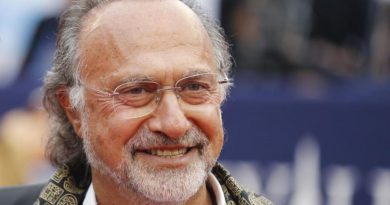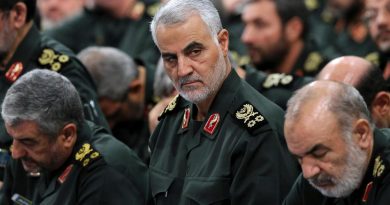Why Iran’s Raisi decided not to attend the Climate change Summit in Scotland
by Cyrus Yaqubi
Ebrahim Raisi decided not to attend the summit, not because Iran was not a party to the treaty, but precisely because of the legal consequences.
Since mid-June, Iranian media have been eagerly announcing that Ebrahim Raisi has been officially invited to attend the 26th UN Climate change Summit (COP26), which is scheduled to take place from October 31 to November 12 in Glasgow, Scotland. However, none of these reports indicated that Raisi would not attend the summit.
After Ebrahim Raisi’s COP26 participation announcement, the National Council of Resistance of Iran (NCRI) , the main organized opposition to Mullahs, launched a major campaign to prevent Raisi from attending the summit. They called on the arrest and trial of Ebrahim Raisi for his role as Tehran’s deputy prosecutor and member of the death committee in the 1988 massacre and as head of the judiciary responsible for the killing of 1,500 people during the November 2019 peaceful protest.
The NCRI’s campaign that included widespread demonstrations and protest actions in North America and Europe coincided with the trial of another defendant in the 1988 massacre, Hamid Nouri, in Sweden. Hamid Nouri, who worked as Raisi’s assistant at Gohardasht Prison in the city of Karaj at the time of the 1988 massacre, was directly involved in killing political prisoners. Nouri was under the impression that no one would pursue the matter after 32 years of the 1988 massacre, and no one would recognize him. So he decided to travel to Sweden in November 2019.
However, a few massacre survivors who had learned of his visit were able to present a complaint against him to the Swedish judiciary. The Swedish prosecutor’s office, under the universal jurisdiction in a foreign country that allows the judiciary of any country to prosecute the perpetrator, regardless of the nationality of the accused and the victims, as well as the location where the crime took place, was first able to detain him for one month. After an initial investigation and confirmation of his role in the massacre, his detention was extended on charges of premeditated murder, crimes against humanity, torture, and genocide. The news quickly made headlines in all Swedish media. After Nouri’s arrest, Agnes Kalamard, the previous UN Special Rapporteur on extrajudicial executions, and present Secretary-General of Amnesty International said: “This is an important first step towards justice for the 1988 executions.
The Iranian regime was well aware that Nouri’s trial would be considered a trial in absentia of several of the regime’s leaders because Nouri was taking orders from his superiors, making them responsible for all the killings.
To free Nouri, the Iranian regime did whatever could do and in the process even sentenced a Swedish citizen, Ahmad Reza Jalali, a doctor and researcher of dual Iranian-Swedish nationality, who had been arrested on charges of espionage in Iran, to death, in hope of exchanging him with Hamid Nouri.
However, the Swedish judiciary did not succumb to the Iranian regime’s blackmail, and the trial of Hamid Nouri started on August 10, 2021, in the Stockholm District Court and is now continuing.
Recently, the International Criminal Court in The Hague announced that they had opened a case against Philippine President Rodrigo Duterte to investigate allegations against him in relation to the war on drug trafficking, as he is accused of Arbitrary execution of many drug traffickers.
These arrest warrants prompted Ebrahim Raisi to be very cautious about his foreign travels and not to travel to countries where there is a risk of his arrest. He traveled to Tajikistan to attend the Shanghai Cooperation Organization (SCO) summit in September but refused to take the risk to attend the annual session of the UN General Assembly, avoiding travel to New York under the pretext of the Coronavirus pandemic and work overload in Iran!
Now, after much publicity about Ebrahim Raisi’s invitation to attend COP26 in Scotland, Saeed Khatib Zadeh, spokesman of Iranian Ministry of Foreign Affairs, at a weekly press conference on October 11 said: “President will not participate in COP26 in Scotland.” On the reason for Raisi’s absence, he said: “Iran is not a full member of this treaty, and the ratification process is underway in the country, but a delegation from Iran is participating in it”!
But the fact that Ebrahim Raisi decided not to attend the summit, not because Iran was not a party to the treaty, but precisely because of the legal consequences and a potential international scandal. Both Raisi and his mentor Khamenei were very willing to make a presence in such a large international conference to meet with leaders of other countries, but the risk was too high for the regime, so Raisi was ordered to stay home.
Cyrus Yaqubi is a Research Analyst and Iranian Foreign Affairs Commentator investigating the social issues and economy of the Middle East countries in general and Iran in particular.



